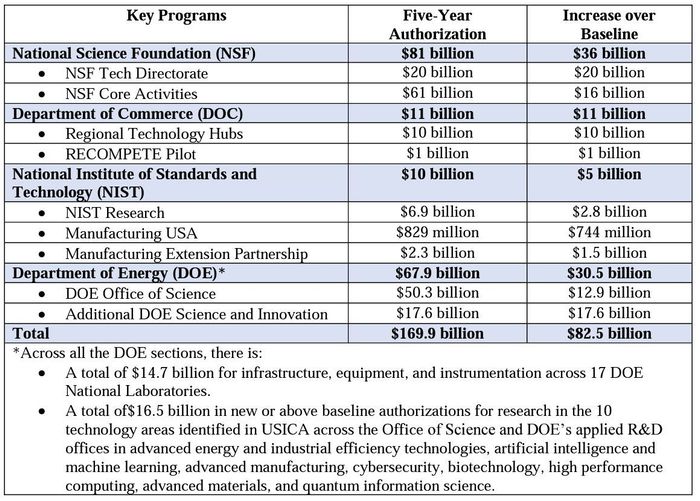After long pushing Congress for such legislation, President Joe Biden on Tuesday signed into law a bipartisan $280 billion bill focused on domestic semiconductor manufacturing and scientific research.
The House approved the Chips and Science Act in a 243-187 vote on July 28, a day after the Senate gave its OK in a 64-33 vote. Biden had been expected to sign the legislation quickly, but there were delays due to his lingering case of COVID-19.
The measure’s final name is the Chips and Science Act of 2022, following a variety of monikers over the months for versions of legislation aimed at tech issues, including the U.S. Innovation and Competition Act and the COMPETES Act.
One key element for the legislation, which totals more than 1,000 pages, is $52.7 billion for domestic manufacturing of chips
SMH,
SOXX,
including $39 billion for an incentive program and $11 billion for programs aimed at research and development and workforce development.
In addition, a 25% investment tax credit for semiconductor plants has an estimated cost of $24 billion.
There is also roughly $200 billion for scientific research, including $81 billion for the National Science Foundation, $10 billion for regional technology hubs and $68 billion for the Department of Energy.
This table shows some of the legislation’s funding for scientific research:

U.S. Senate Commerce Committee
Backers of the bill from both parties have described it as meeting critical national-security needs. They’ve emphasized that it aims to prevent companies that receive funding from expanding their microchips manufacturing in China or “other countries of concern,” and the funding also can’t go toward stock buybacks or dividend payments.
“This is the bold action needed to counter investments in innovation made by our foreign competitors, including China, and will help us reclaim America’s global leadership in innovation,” said a statement from TechNet, which lobbies for the technology industry.
But some senators still panned the measure, with Republican Sen. Chuck Grassley of Iowa tweeting that he saw eye to eye with a prominent Vermont colleague who usually votes with the Democrats.
“Bernie Sanders & I almost never agree but he is right about so-called CHIPS bill,” Grassley said on Twitter. “It’s just a huge govt handout to massive/already-profitable companies.”
The chips measure had been expected to sail through the House with ease, but there were briefly concerns that it would face a closer-than-anticipated vote, after Republicans objected to a surprise deal among Senate Democrats on a separate $739 billion healthcare, climate and tax package.
In the end, 24 House Republicans voted for the chip bill on July 28, and no Democrats voted against the measure, although one did vote “present” rather than “yea” or “nay.”
And see: Chip stocks rally despite an ominous forecast, as U.S. semiconductor funding bill advances in Senate
This is an updated version of a report first published on July 27, 2022.


